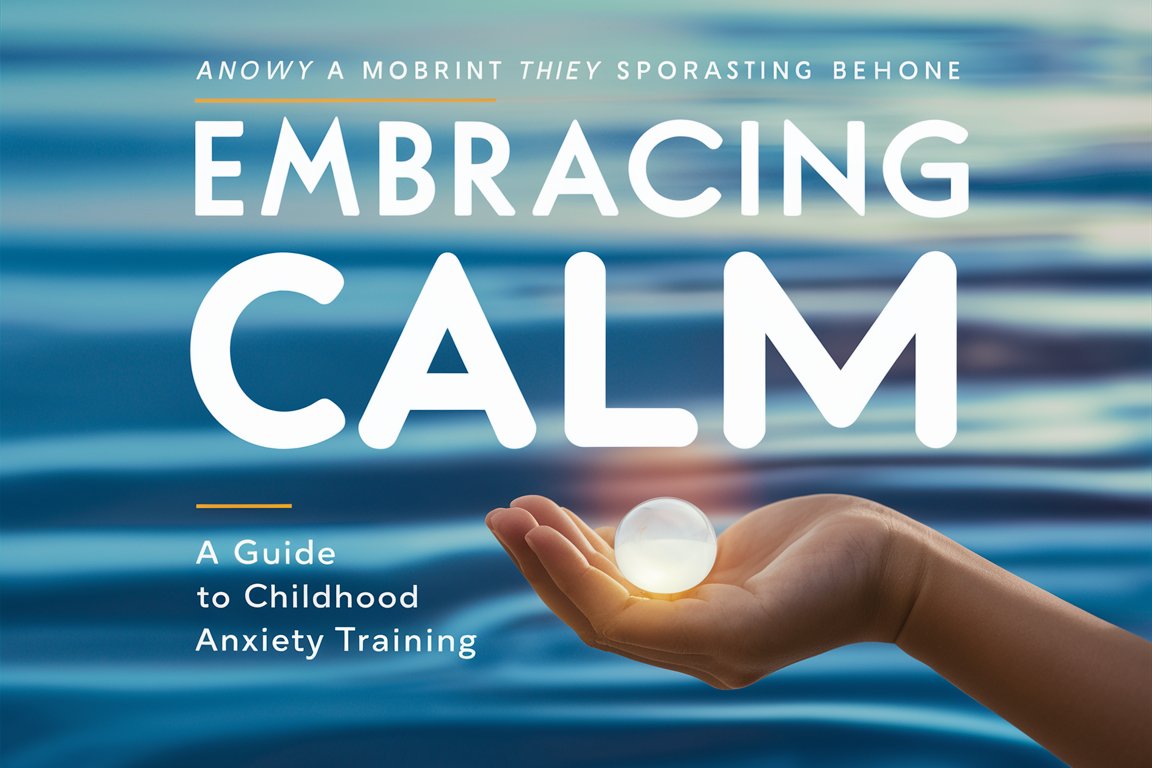Childhood anxiety is a prevalent and often misunderstood issue that can have significant impacts on a child’s well-being and development. From separation anxiety to social phobia, the manifestations of childhood anxiety are diverse and complex. Fortunately, with the right training and support, therapists can help children and their families navigate the challenges of anxiety and build resilience for a brighter future. In this comprehensive guide, we’ll explore the world of childhood anxiety training, its core principles, and the transformative impact it can have on both therapists and the young people they serve.
A Holistic Approach
Childhood anxiety training provides therapists with the knowledge, skills, and tools needed to recognize, assess, and address anxiety in children. Through a combination of theoretical learning, practical exercises, and case studies, therapists gain a deeper understanding of anxiety disorders, their causes, and effective intervention strategies. Childhood anxiety training emphasizes the importance of early intervention, personalized treatment plans, and a holistic approach to addressing the underlying factors contributing to a child’s anxiety.
Exploring the Core Principles of Childhood Anxiety Training
- Understanding Anxiety Disorders: Childhood anxiety training begins with an in-depth exploration of anxiety disorders, including generalized anxiety disorder, separation anxiety disorder, social anxiety disorder, and specific phobias. Therapists learn to recognize the signs and symptoms of anxiety in children and differentiate between normal developmental fears and clinically significant anxiety.
- Evidence-Based Interventions: Childhood anxiety training equips therapists with a variety of evidence-based interventions and techniques to help children manage their anxiety effectively. From cognitive-behavioral therapy (CBT) to exposure therapy and relaxation techniques, therapists learn to tailor interventions to meet the unique needs of each child and family.
- Empowering Children and Families: Childhood anxiety training emphasizes the importance of empowering children and their families to take an active role in managing anxiety. Therapists learn to collaborate with parents, teachers, and other caregivers to create a supportive environment where children can learn coping skills, build resilience, and thrive.
Nurturing Resilience, Fostering Growth
- Improved Coping Skills: Through childhood anxiety training, therapists help children develop practical coping skills to manage their anxiety in daily life. From deep breathing exercises to positive self-talk and problem-solving strategies, children learn to recognize their triggers and respond to anxiety in healthy, adaptive ways.
- Enhanced Emotional Regulation: Childhood anxiety training teaches children how to regulate their emotions and manage stress effectively. By learning to identify and express their feelings in a constructive manner, children develop greater emotional resilience and confidence in their ability to cope with challenging situations.
- Strengthened Support Networks: Childhood anxiety training not only benefits children but also their families and support networks. Therapists work collaboratively with parents, teachers, and other caregivers to create a supportive environment where children feel understood, valued, and accepted.
Your Partner in Healing
Compass Australia is proud to offer comprehensive childhood anxiety training programs designed to equip therapists with the skills and knowledge needed to support children and families struggling with anxiety. Our expert trainers provide hands-on instruction, case studies, and practical exercises aimed at enhancing therapists’ abilities to assess, diagnose, and treat childhood anxiety effectively. Whether you’re new to childhood anxiety training or looking to deepen your skills, Compass Australia has the resources and support you need to make a meaningful difference in the lives of the children you serve.
Conclusion
As you embark on your journey into the world of childhood anxiety training, remember the profound impact it can have on the lives of children and families. Through its focus on evidence-based interventions, empowerment, and collaboration, childhood anxiety training offers a pathway to healing, growth, and resilience. With Compass Australia as your guide, you can elevate your practice and make a lasting difference in the lives of the children you serve. So why wait? Embrace the power of childhood anxiety training and unlock the potential for healing and growth today.
Stay in touch to get more updates & news on Discover Tribune!




